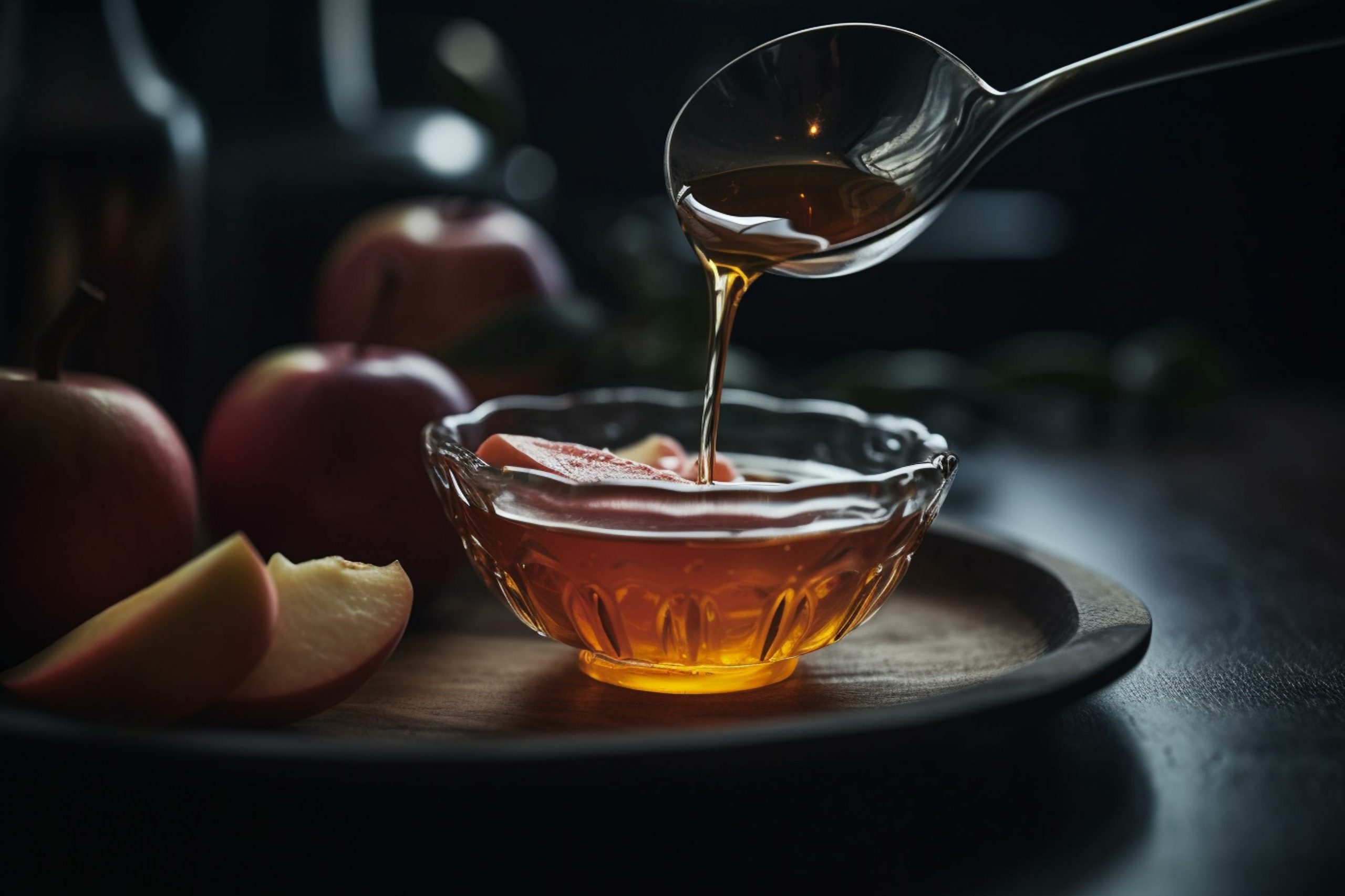Apple Cider Vinegar is a well-known health remedy recommended by the experts thanks to it’s numerous health benefits. It is extremely rich in antioxidant polyphenols such as quercetin, resveratrol and catechins, so as we transition into the winter months shouldn’t we be ensuring that it’s part of our daily health regime? We spoke to Jane Mostowfi, BANT registered nutritionist, to discover why Apple Cider Vinegar is such a popular health product.
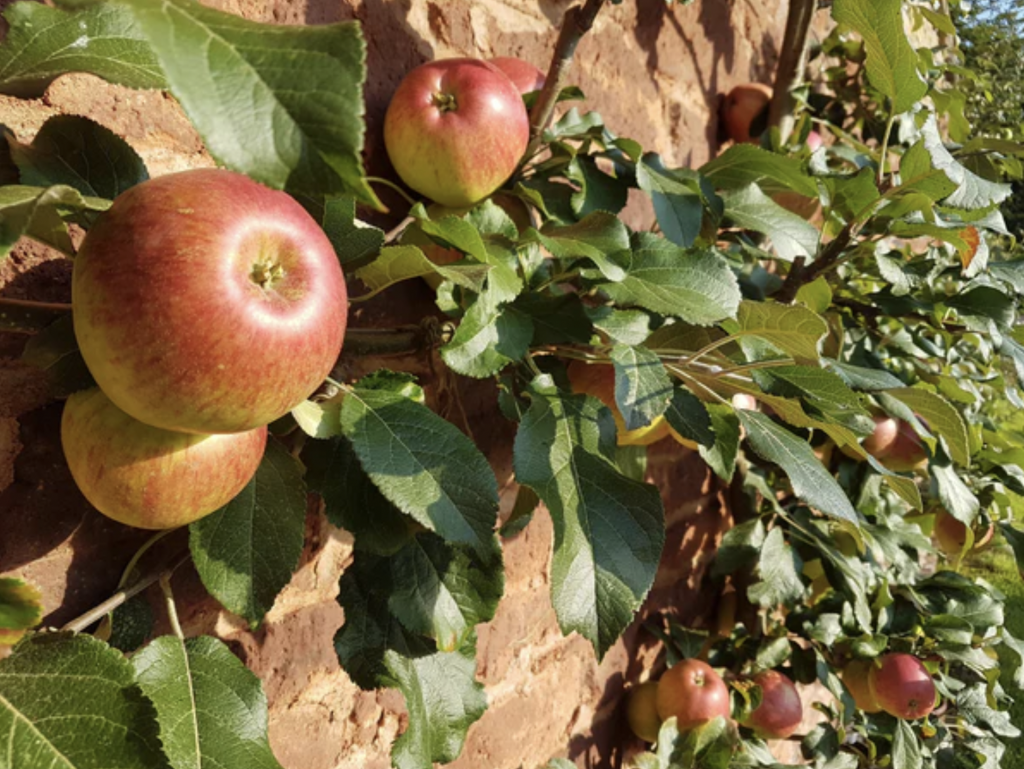 What exactly is ACV?
What exactly is ACV?
Apple Cider Vinegar (ACV) is made through a two-step fermentation process involving crushed apples or apple cider. ACV’s key ingredient is acetic acid – which all vinegars have in common, but ACV contains something else that’s of special interest. When it’s filtered, it looks like a clear liquid, but left unfiltered, it has a cloudy appearance and you might notice strands floating in it. You’re looking at something called ‘the mother’ – a combination of yeast and bacteria that forms during fermentation, and one of the stand-out factors of the Manuka Doctor ACV range. This is the key ingredient to look for when buying Apple Cider Vinegar for winter immunity.
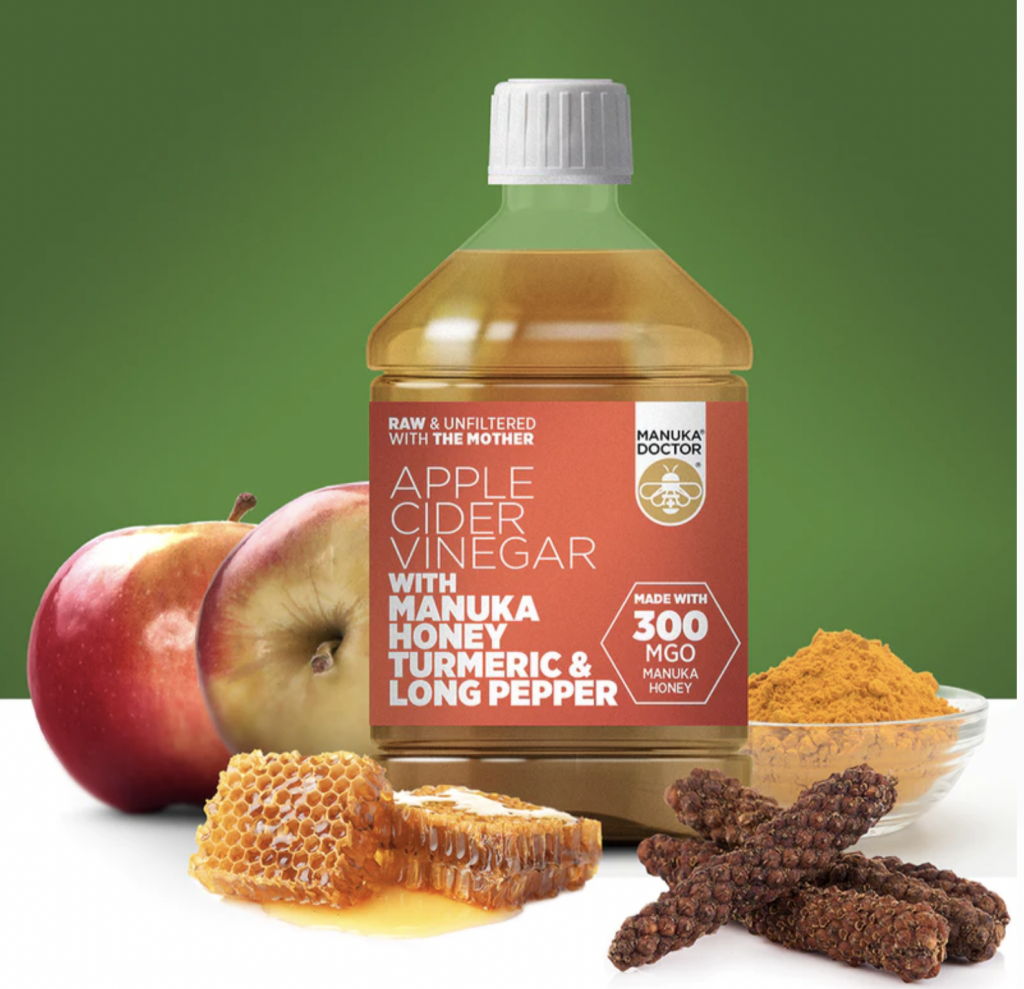
What are the health benefits of drinking Apple Cider Vinegar?
“ACV is known to support a healthy blood sugar balance, and to help stimulate the production of stomach acid to support healthy digestion” Jane comments. This can be particularly relevant for people with type 2 diabetes or those at risk of developing diabetes. Some people do report that Apple Cider Vinegar has also helped reduce their appetite and therefore aided weight loss- but is there any research to back this up? In one recent study, overweight or obese participants took 1 tbsp of ACV with lunch and dinner, as part of a diet that came to 250 calories below their estimated daily requirements. Researchers discovered the people who took ACV lost almost 4lbs more than the control group, who followed the same lower-calorie diet but didn’t take the ACV. The researchers theorise ACV may help by dampening down appetite – acetic acid has been shown to slow the absorption of starches in food, and that may keep you feeling fuller for longer.
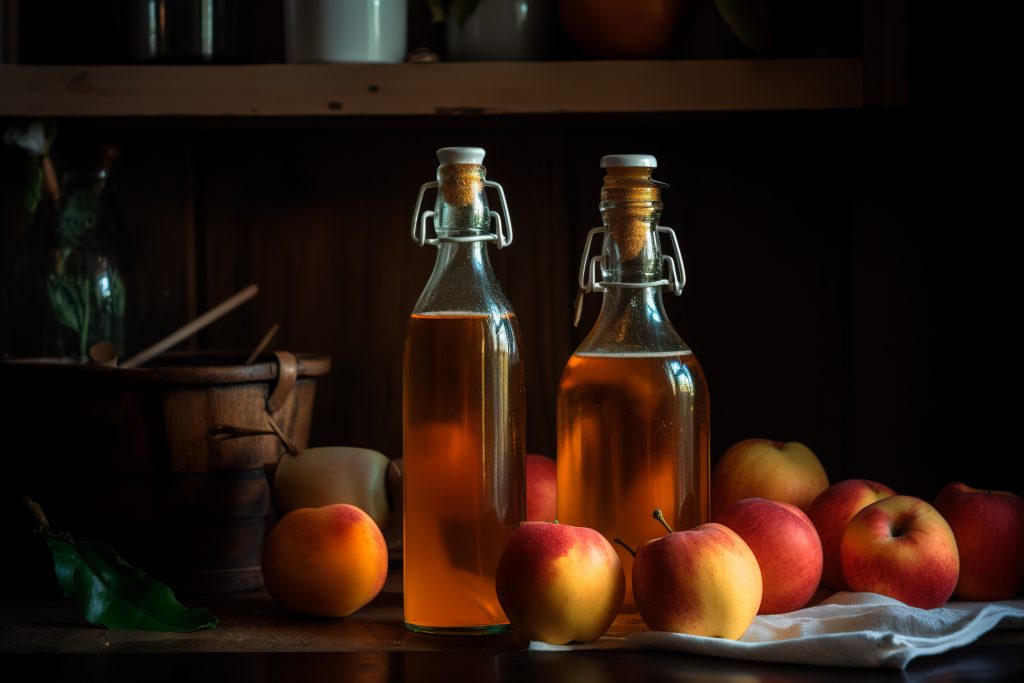 Why would you pair ACV with Manuka Honey?
Why would you pair ACV with Manuka Honey?
Manuka honey is a type of honey that is produced in New Zealand from the nectar of the Manuka tree. “Manuka honey has many benefits such as anti-inflammatory, antibacterial, antiviral and anti-fungal properties. Add it to your salad dressings or use it in your hot lemon and ginger toddy for a nasty cold or flu” Jane adds. It is known for its unique composition and potential health benefits, including it’s support for the immune system, something we all need during the colder months. Manuka Doctor’s unique ACV & Manuka Honey range comes in three varieties, all with added health benefits; Apple Cider Vinegar with Ginger & Manuka Honey, Apple Cider Vinegar with Turmeric, Manuka Honey & Long Pepper and the Apple Cider Vinegar with Manuka Honey. “The combination of ACV and Turmeric has particularly good anti-inflammatory powers, supports the liver’s detoxification pathways and has excellent antioxidant capabilities,” says Jane.
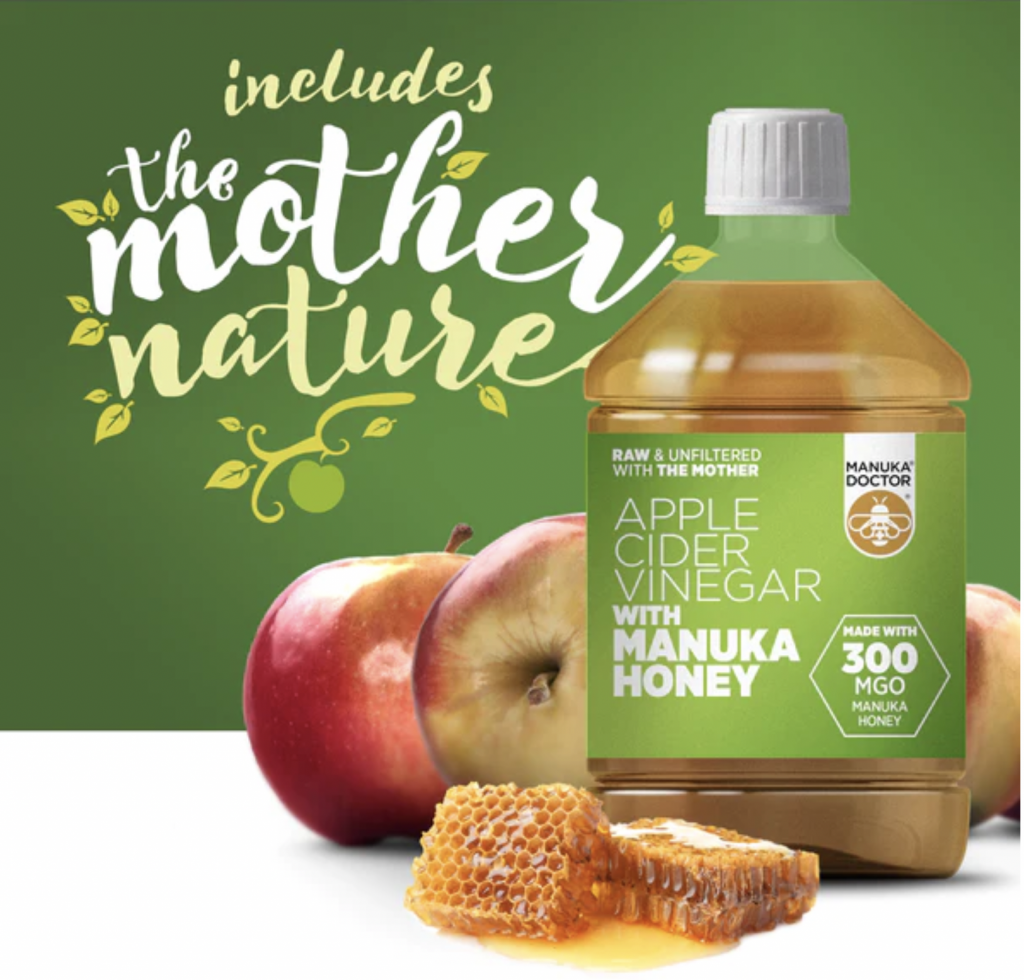
What is the best way to include ACV in my diet?
You can include ACV by drinking it by itself! However, most people choose to dilute it with water or a fruit juice as it is often too acidic to drink straight. Jane recommends drinking it before your first meal of the day to optimise blood sugar balance.
Find more information on the Manuka Doctor ACV range here.


